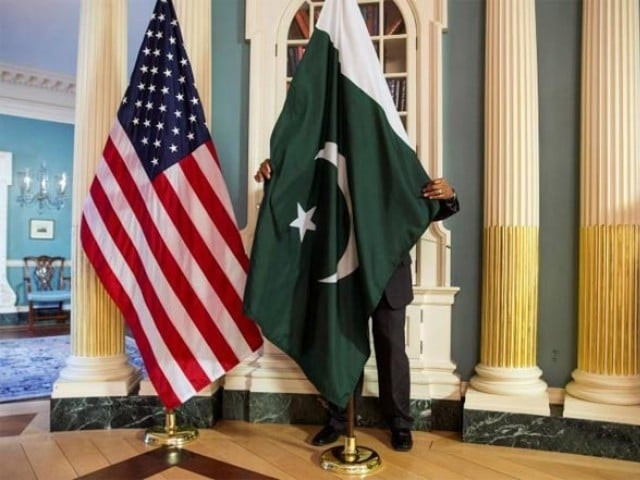Think beyond security in Pak-US ties: speakers
Experts call for furthering areas of cooperation

PHOTO: FILE
Both the countries need to focus on furthering cooperation in areas of economics, trade, development and culture. Such an approach will help achieve the goal of a peaceful and prosperous region, they said at the moot titled Irritants in Pakistan-US Relations: Way Forward organised by the Islamabad Policy Research Institute (IPRI).
The eminent scholars proposed that to remove the mutual mistrust between Pakistan and the US and to revive cooperation, it is important to holistically debate key irritants that mar bilateral ties, understand each other’s security concerns, acknowledge contributions made in achieving peace in the region and work on commonalities, in which, both sides can work together and expand cooperation.
It is important for Pakistan to look inwards because only economic autonomy can give the country an independent foreign policy and a sustainable future.
Both the US and China are superpowers. Pakistan needs friendly and close relations with both countries. Pakistan’s relations with each cannot be at the expense of one over the other.
IPRI Acting President Brig (retd) Sohail Tirmizi said that the present Pakistan-US relationship suffers from mutual mistrust and suspicion due to divergent approaches and interests in the region.
To further put pressure, the US administration has ceased military training for defence personnel and the Coalition Support Fund (CSF) for Pakistan, resorted to the use of diplomatically harsh language and exercised its influence in the Financial Action Task Force (FATF). Brig Tirmizi pointed out that the US’ relations with India and Afghanistan have been instrumental in formulating its policy towards Pakistan. “US disregard of Pakistan’s sensitivities, its legitimate security interests vis-a-vis these states has not helped to bridge the mistrust in their relationship,” he said.
Ambassador Inamul Haq stressed that the US has no intention of allowing a challenge to its primacy in the world by any country, including China. It will use all the means at its disposal to remain the undisputed and sole superpower of the world. “Full spectrum domination is primary objective of the US.”
The former foreign minister and IPRI Board of Governors chairman pointed out that foreign policy cannot be based on self-delusion, and false assumptions. “Without an autonomous economy, no country can have an autonomous foreign policy,” he said.
In the first session, former ambassador Shamshad Ahmed said: “foreign policy is an external reflection of a country’s internal conditions. So if a country is weak and crippled from inside, its foreign policy will not be robust and strong either.”
He was of the view that: “Strengthen Pakistan’s economy and governance systems so that we are not at the beck and call of any country, including the US.”
Discussing his views on the Making of US Foreign Policy and Pakistan, ex-foreign secretary and ambassador (retd) Riaz Hussain Khokhar remarked: “We should be frank with the Trump administration about what Pakistan can actually deliver in Afghanistan especially in terms of the Taliban because at the end of the day, Pakistan does not have the kind of influence which is often projected.”
Lt General (R) Asif Yasin Malik chaired the session on Identifying Factors of Trust Deficit in Pakistan-US Relations.
Ex-Defence Secretary Dr Salma Malik who is currently working at QAU Department of Defence and Strategic Studies said balance of US is tilting in India’s favour – with the landmark strategic partnership signing of recent 2+ 2 agreement, US support to a nuclear normalization attempt by India and shift in the Asia pivot has taken the India-Pakistan rivalry into a very different direction.
On the issue of promoting Pakistan-US cooperation in countering extremism and terrorism, Dr Syed Hussain Shaheed Soherwordi, Department of International Relations, University of Peshawar, said Washington needs to craft a vision of the future that places Pakistan into a much larger regional context beyond the prism of looking at it from the Afghan and Indian perspective.
Published in The Express Tribune, October 10th, 2018.



















COMMENTS
Comments are moderated and generally will be posted if they are on-topic and not abusive.
For more information, please see our Comments FAQ